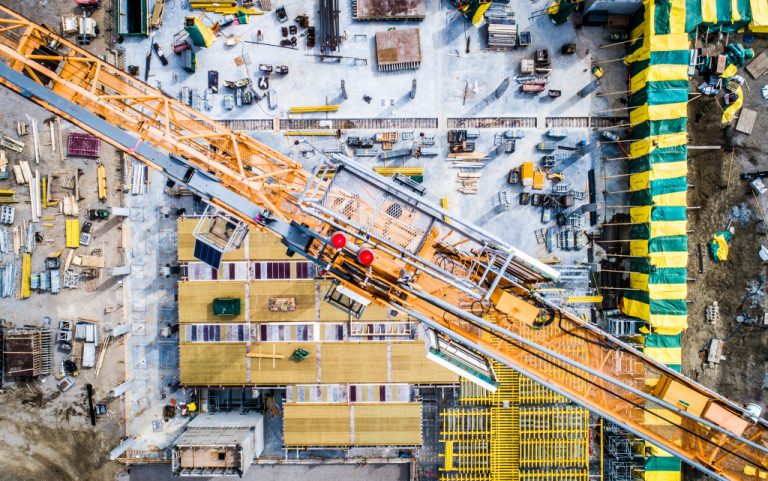As a business owner in the construction industry, staying on top of the latest trends and technology can be a challenge. It’s easy to get stuck in a rut and find yourself unable to keep up with the competition. This can be devastating, especially considering that over two million firms are in the industry. Here are five reasons why your construction business could be outdated – and how you can stay ahead of the game.
Sticking to Tradition
If your company has been using traditional methods for decades, it may be time to take advantage of modern innovations that can save time and money. For example, investing in new equipment, such as 3-D printers or laser cutters, could dramatically increase efficiency and reduce costs. Additionally, you should invest in BIM.
BIM is a building information modeling method that allows you and your team to model, simulate and analyze all aspects of the project. It’s estimated that using this technique can save an average of 10% on a project’s time frame and around 15% in labor costs. Staying abreast of new technology is key to staying relevant in an ever-changing industry.
Investment in Human Resources
Your team is the backbone of your business – so if you’re not investing in their growth, you’re likely falling behind. Therefore, it’s essential to train your employees to learn about new techniques or technologies that can help make them more efficient on the job site. Additionally, offering incentives such as bonuses or raises will help show them that their efforts are valued by management. This will increase morale, loyalty, and productivity – all essential for success!
Outdated Websites & Digital Presence
In today’s digital age, having an online presence is essential for any business looking to stay competitive. However, if your website hasn’t been updated in years or lacks es like customer reviews/testimonials or contact forms, you’re missing out on potential customers searching for services like yours. Additionally, investing in SEO tactics such as content marketing and keyword optimization will ensure that your website pops up near the top of search engine results pages (SERPs).
Ignoring Social Media

An active social media presence is another great way to reach potential customers who might not otherwise find you through traditional advertising methods. Posting regular updates about projects or promotions on platforms like Facebook and Instagram can help build brand awareness and trust among current and prospective clients! Plus, these platforms provide invaluable insight into what people are saying about your company – feedback that can then be used to improve services offered or better meet customer needs.
Not Adapting Quickly Enough
The construction industry is incredibly dynamic; what works today might not work tomorrow due to changes in regulations or client preferences. Therefore, it’s essential to assess market conditions and adjust accordingly to remain profitable over time. Whether this means introducing new materials/techniques into existing processes or reworking contracts based on customer needs – being flexible enough to adapt quickly could make all the difference in long-term success!
3 Ways to Make Your Construction Firm More Adaptive
Keeping up with trends and technology isn’t always easy – but it’s essential for any construction business wanting to stay competitive long-term! Adaptability is vital, and understanding when changes need to be made quickly will give businesses an edge over their competitors. Here are some ways you can be more adaptive in your construction firm.
Invest in Heavy-Duty Equipment
Heavy-duty equipment is crucial for any construction project. You should invest in equipment such as excavators, cranes, and bulldozers, which allow you to work more quickly and efficiently. Additionally, investing in newer equipment with built-in smart features can help automate tasks, freeing up time for your team to focus on other priorities.
It’s also good to invest in something that can measure the load of a particular item. Load testing equipment can help you determine the weight of materials or elements while construction to ensure they are up to your standards. This will ensure that projects are tailored in a way that will be cost-effective and durable.
Develop a Flexible Budgeting Strategy
For businesses in the construction industry to remain competitive, their budgets must be flexible and realistic at all times. Instead of having a “one size fits all” budgeting strategy that doesn’t account for changes throughout a project or shifts in economic conditions, try creating multiple budget plans that allow you to adjust accordingly when needed without sacrificing quality or time frames.
Establish Clear Communication Processes
Poor communication between teams can lead to costly errors or delays in projects. This is why it’s essential for construction businesses to establish transparent communication processes that ensure all team members are on the same page regarding project requirements and timelines. For example, consider setting up meetings where team members can discuss progress reports or developing a system where all communications are documented (e.g., emails or chat applications). These strategies will help keep everyone informed while reducing confusion and miscommunication.
The construction industry is constantly changing – those who can stay on top of new trends while staying flexible will be best positioned for long-term success. Use these tips to help your construction firm become more adaptive in its efforts!




